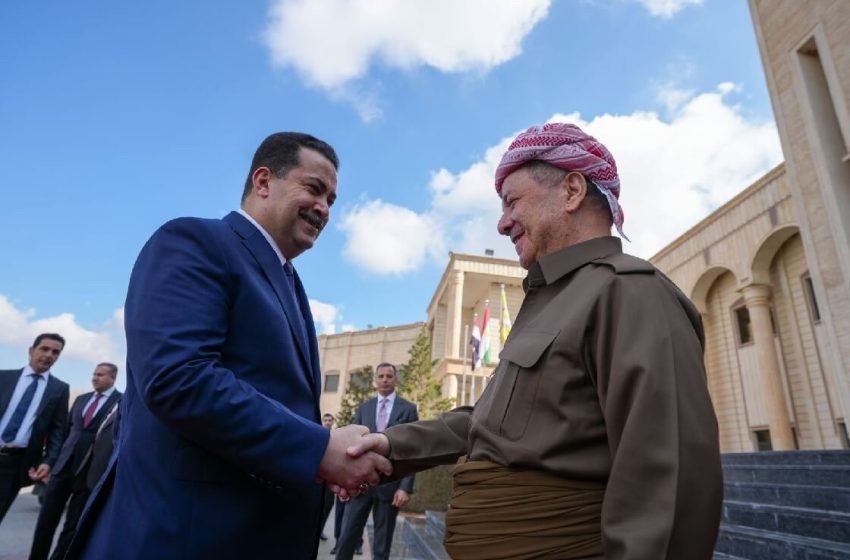Baghdad strengthens control over Iraq’s autonomous Kurdistan region

Amidst a period of relative stability, Iraq is moving to assert greater control over the oil-rich autonomous Kurdistan region, marking a significant development in the longstanding discord between federal authorities and the Kurdish leadership. Recent rulings by the Supreme Court, perceived by Kurds as attempts to undermine the region’s autonomy, have exacerbated tensions between Baghdad and Erbil, the capital of Kurdistan.
Prime Minister Masrour Barzani of the Kurdistan region issued a warning last week, citing “conspiracies aimed at undermining and dismantling” Kurdistan, fueled by internal support within the region. The pressure appears to be particularly targeted at Barzani’s Kurdistan Democratic Party (KDP), embroiled in a longstanding rivalry with the Patriotic Union of Kurdistan (PUK), the other main political party in the region.
Kurds in Iraq endured persecution under Saddam Hussein’s Sunni Arab-dominated regime until the 2005 constitution formally recognized their autonomy following the US-led invasion in 2003. However, efforts to reconcile the relationship between Baghdad and Kurdistan have remained challenging, plagued by historical grievances and political differences.
A senior official in Baghdad, speaking anonymously, acknowledged the negligence towards addressing Kurdistan’s mistakes, including issues related to oil deals, financial systems, and illegal decisions. He emphasized the present urgency to rectify these errors, signaling Baghdad’s intent to strengthen its grip over the region.
Despite grappling with similar challenges such as corruption and political fragmentation, the US-backed Kurdistan region has positioned itself as a stable economic hub in contrast to the turmoil plaguing federal Iraq. Notably, last year witnessed civil servants and lawyers from Sulaimaniyah, a stronghold of the PUK, taking legal action against both regional and national authorities over unpaid salaries, underscoring longstanding grievances over financial disputes.
As tensions between Baghdad and Erbil continue to simmer, the dynamic between the central government and Kurdistan remains precarious. The efforts by Baghdad to consolidate control over the autonomous region raise concerns about the future of Kurdish autonomy within the Iraqi state, prompting observers to closely monitor the evolving situation for further developments.



